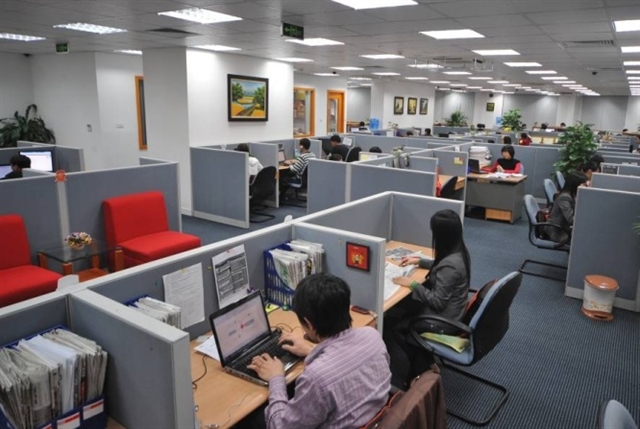The office market in Vietnamese cities like Ha Noi and HCM City is likely to recover faster post-Covid than other major cities in the Asia Pacific, experts have predicted.

The office market in Vietnamese cities like Ha Noi and HCM City is likely to recover faster post-Covid than other major cities in the Asia Pacific, experts have predicted.
“In the long term Viet Nam remains the best destination in Asia,” Vo Thi Khanh Trang, head of research at Savills Vietnam.
"While in most of the cities researched grade A office rents have been falling, in Viet Nam they are stable in Ha Noi and have increased in HCM City.”
Rents in HCM City and Ha Noi are the second highest in Southeast Asia after only Singapore, she added.
A report from Savill showed that HCM City has been the best performer in the region this year with occupancy of 96 per cent and an increase in rents of 4 per cent.
High-grade office space usually attracts foreign tenants, and so interest in the grade A segment would increase proportionately with FDI inflows, it said.
HCM City and Ha Noi have been among the top five cities and provinces in terms of FDI inflows this year.
The company forecast FDI to increase strongly after the pandemic ends because of the series of free trade agreements signed in recent times, including the European Union – Viet Nam Free Trade Agreement that came into effect recently.
The Government and the State Bank of Viet Nam have been taking a number of measures to revive the economy, Trang said.
On the whole, a rapid recovery in the office market and abundant FDI inflows are expected from the second half of 2021, she said.
According to Savills, Viet Nam has the smallest office market in the region. Grade A office supply in HCM City and Ha Noi adds up to just over 730,000sq.m, or only 23 per cent of Singapore’s supply and 19 per cent of Kuala Lumpur’s.
Therefore, occupancy rates were very high when the Covid-19 crisis began, and landlords were enjoying a sellers’ market, increasing rents routinely.
Since the pandemic began, however, they have kept rents unchanged and even supported tenants by offering discounts and better terms.
Some tenants opted to move to lower grade buildings, out of the central business district or to townhouses.
Neil MacGregor, general director of Savills Vietnam, said: "The impact of the epidemic on the office market seems to be not significant at all, we have not seen such a sharp drop in office rents, maybe a little bit down but nothing serious.
“The market started to see owners or landlords giving short-term incentives for tenants, such as a 10-20 per cent lease discount in a given quarter, or an increase in the free service period - moves that could be judged as unprecedented."
In the second quarter the market started to see tenants cutting space or moving to cheaper places. In both major cities, leased areas shrank as a result.
Following a fresh outbreak of COVID in July, the office market continues to experience shrinking demand, and so occupancy rates are expected to fall in the second half of the year. — VNS





